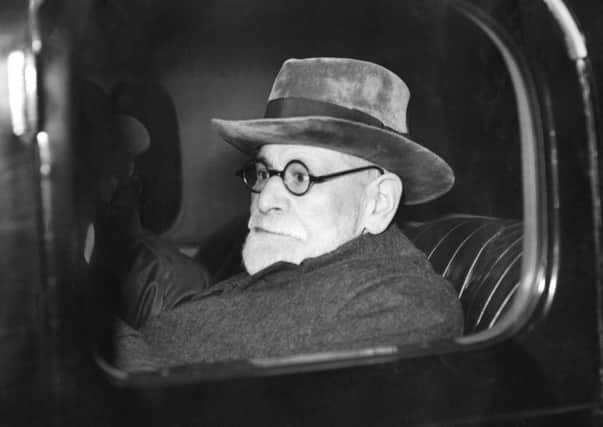Book review: Freud - In His Time And Ours, by Élisabeth Roudinesco


In terms of resolving the biographer’s dilemma, Roudinesco adopts various strategies. She is alert to how Freud’s thought changes over his long lifetime. The most moving example of this is grounded in biography: when Freud was thinking about the “seduction theory” whereby all trauma is the result of childhood sexual abuse, he toyed with the idea that his father had assaulted his sisters; and then recanted it, with a degree of due shame.
She writes well on the (Freudian) psychodrama between “the Professor” and his acolytes. It is ironic, for example, that his breach with Carl Jung follows the classic Oedipus Complex. Jung maintained that the libido was not the driving force; a kind of cerebral castration of the father-figure. Many of the most salacious rumours about Freud – such as the imputation of an affair with his sister-in-law – came from detractors and mischievously reapplied Freudian thinking to Freud himself. Someone so interested in perversion, they claim, can’t not be a pervert.
Advertisement
Hide AdRoudinesco highlights the paradoxes time and again. Freud, while making Eros central to his conception of the human psyche, is to all intents and purposes celibate after the birth of his youngest daughter Anna. The man who invented the “talking cure” speaks in a stifled manner on the only recording we have of him, because of the prosthesis on his jaw necessitated by his cancer; his so-called “muzzle”. We learn as much about Freud, and Freudian thought, from the patients whom he singularly failed to help as much as those who benefited from his treatment. There’s even the pleasing irony that Freud’s first work was on the male genitals of eels, which he failed to find – then created a whole thesis around the absent phallus.
One of the most crucial of these paradoxes is Freud’s insistence that psychotherapy and psychoanalysis be considered sciences, and that they ought not to be aligned with psychiatry, psychology or philosophy. This had consequences. As a science, Freud thought it should be politically neutral, objective and that it should avoid having a Weltanschauung, a complete “world-view”. In part this is noble: psychotherapy was dealing with particular problems suffered by distinct individuals. But of course, it did have a world-view: any theory which provides hypotheses about how civilisation came into being, and which seeks to universalise its observations, inevitably has. For all that he proclaimed it a science, his recourse was always to myth and literature; to Oedipus, the neurotic Hamlet, to Moses, to the dissociated and traumatised Tancred. Thomas Mann had it spot on when he referred to psychoanalysis as “Romanticism turned scientific”. Roudinesco does, however, make a valid claim that Freud’s rejection of the then current “therapeutic nihilism” – the idea that practitioners should listen as little as possible to the patient as their job was to understand rather than cure – shows a scientific approach.
The more problematic upshot of this scientism was that Freud ignored the rise of Nazism. WH Auden in In Memory Of Sigmund Freud praises him for providing “the critique of a whole epoch / the frailty of our conscience and anguish”; yet he failed to believe in the danger of Hitler almost until it was too late. Significantly, various branches of psychoanalysis can provide insight into the fascist phenomenon. The Viennese world in which Freud thrived was annihilated. Looking back on the culture which fostered Klimt and Schiele, Strauss and Berg, Schnitzler and Musil it is hard not to think of it as inevitable that someone would try to comprehend the pathological mixture of the erotic and the morbid, and Roudinesco succeeds in making Vienna central to the story.
Roudinesco’s work is both comprehensive and subtle. One example encapsulates this. She pays attention to a strange, posthumous work, Woodrow Wilson: A Psychological Study, co-authored with the journalist William Bullitt. Doubts have been cast on how much Freud contributed. “Bullitt had succeeded,” she writes, “in writing a book so faithful to Freudian doctrine that it seemed too slavishly Freudian to have been authored by Freud himself. It lacked the doubt, the ambivalence, the bold hypotheses that were so characteristic of Freud’s customary approach”. This is perhaps the real reason why we still read Freud, and in reclaiming him as “the master interpreter of civilisation and culture”, she has provided an invaluable service.
*Freud: In His Time And Ours, by Élisabeth Roudinesco, Harvard University Press, £25